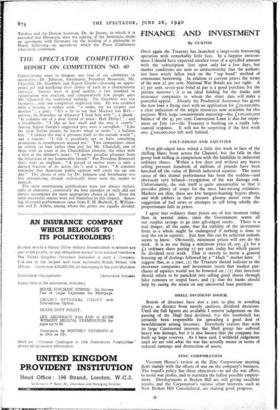COMPETITORS were to imagine any four of six celebrities or
notorieties—Dr. Johnson, Swinburne, President Roosevelt, Mr. Churchill, Dr. Goebbels and Signor Gayda—choosing an appro- priate pet and justifying their choice of each in a characteristic sentence. Entries were of good quality, a fair standard in vituperation was reached, and comparatively few people gave Mr. Churchill the traditional bulldog. Dr. Goebbels was the favourite ; only one competitor neglected him. He was credited with a hyaena, a turkey cock, " a snake, for we respect one another " ; a goat : " It's a lie to say that Michael has B.O.- anyway, he flourishes on whatever I feed him with " ; a skunk : " It reminds me of a dear friend of mine : Heil Hitler! " ; and a blackbeetle " I like its low smell and the way it crawls." Among Signor Gayda's suggested pets were a swordfish : " Like the great Italian people, he knows when to strike " ; a balloon fish : " I admire the way it presents itself to the outside world " ; and a toucan : " I felt it peculiarly apt to have something prodigious in mouthpieces around me." Two competitors chose an ostrich (as butt rather than pet) for Mr. Churchill, one of them with an essay in the Churchillian rhetoric, the other with a shot at the debater's irony : " I derive peculiar pleasure from the behaviour of my honourable friend." For President Roosevelt there were an elephant : " A period of twelve years is only a darned fraction of its active life "; and a hare : " A constant reminder that American public opinion will catch me up one day." The choice of pets for Dr. Johnson and Swinburne was less enterprising, though stylistically these were the easiest to mimick.
The most entertaining justifications were not always stylisti- cally in character ; conversely the best parodies of style did not always accompany the most appropriate choice of pet. Even the most successful entries were not blameless in this respect. Amus- ing all-round performances came from E. H. Bedwell, E. William- son and E. Aitken, among whom the prizes are equally divided.


























 Previous page
Previous page